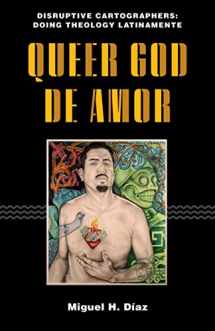
Queer God de Amor (Disruptive Cartographers: Doing Theology Latinamente)
Book details
Summary
Description
NAMED A BESTSELLING TOP THEOLOGY BOOK OF 2022 BY QSPIRIT
Queer God de Amor explores the mystery of God and the relationship between divine and human persons. It does so by turning to the sixteenth-century writings of John of the Cross on mystical union with God and the metaphor of sexual relationship that he uses to describe this union. Juan's mystical theology, which highlights the notion of God as lover and God's erotic-like relationship with human persons, provides a fitting source for rethinking the Christian doctrine of God, in John's own words, as "un no sé qué," "an I know not what."
In critical conversations with contemporary queer theologies, it retrieves from John a preferential option for human sexuality as an experience in daily life that is rich with possibilities for re-sourcing and imagining the Christian doctrine of God. Consistent with other liberating perspectives, it outs God from heteronormative closets and restores human sexuality as a resource for theology. This outing of divine queerness--that is, the ineffability of divine life--helps to align reflections on the mystery of God with the faith experiences of queer Catholics. By engaging Juan de la Cruz through queer Latinx eyes, Miguel Díaz continues the objective of this series to disrupt the cartography of theology latinamente.


We would LOVE it if you could help us and other readers by reviewing the book
Book review



